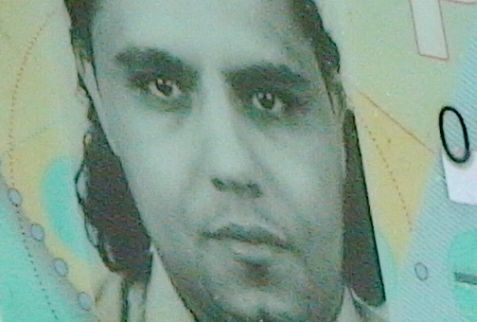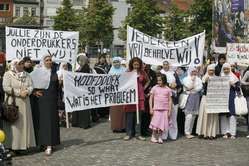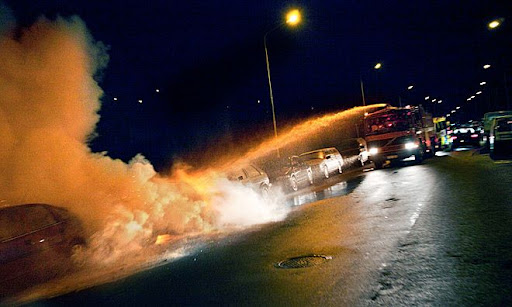The Battle of the Golden Spurs was no event on its own. It was the first real battle between opposing armies of a three-year long war with France which ended with the Treaty of Athis-sur-Orge in 1305 at which France gave up its attempts to annex Flanders but Flanders in turn had to pay huge fines.
These were turbulent years.
In 1303, the Flemings launched a full-blown offensive against the French, first invading Hainaut, which currently is a Wallonian province, then northern France itself, ransacking Saint-Omer and Thérouanne. The French King, Philip The Fair, was because of financial reasons unable to assemble a force to meet this threat and asked, and got, a temporary armistice with Flancers in September 1303.
1304 was to see the culmination of the conflict. Flanders found itself fighting on two fronts, since in the complicated situation of changing alliances between its enemies, the Flemings not only found themselves at war with the French in the south, but also with the Dutch in the north. A Flemish Army invaded what are now the Dutch provinces of Zeeland and Holland, taking a.o. the city of Utrecht. The invasion was short-lived though, and after the Dutch resistance under Willima III stiffened, the battles on the northern front culminated in the Naval Battle of Zierikzee, 10-11 August 1304, during which a French-Spanish-Dutch fleet under the leadership of Admiral Grimaldi (yes, a forefather of Monaco's Grimaldi family) engaged the Flemish Fleet. In spite of initial success, the latter was ultimately defeated.
Only one week later came the decisive battle between Flanders and its principal enemy France took place, and again it was fought on land. This was the Battle of Mons-en-Pévèle in northern France. From Wikipedia:
The Battle of Mons-en-Pévèle was fought on 18 August 1304 between the French and the Flemish. The French were led by King Philip IV the Fair. Both sides claimed victory: (the rebels may have inflicted heavier casualties) but the French remained in possession of the battlefield and forced a Flemish retreat. After further minor battles, eventually the Treaty of Athis-sur-Orge was signed on 23 June 1305 which recognized Flemish independence, at the cost of the cities of Lille, Douai and Béthune, which were transferred to France, and the paying of exorbitant fines to King Philip IV.
With this battle, the golden spurs that were collected by Flemish militiamen from the bodies of French cavalry in the Battle of the Golden Spurs two years before were taken down and reclaimed by the French. The Flemish had hung them up in the Church of Our Lady in Kortrijk as a symbol of victory in battle.
This scant Wikipedia entry does not tell you that in the heat of the fight, the French King, Philip the Fair, was thrown off his horse and only survived because his armor was not explicitly identifying him as France's mightiest man. In autumn of that year, both parties licked their wounds. In 1305 an armistice was reached, and although Flanders had to pay a high price in taxes, France gave up its ambitions to annex our land. Unlike all other medieval regions at the periphery of "core-France", ... our land would never become a part of the French Kingdom.
MFBB.


